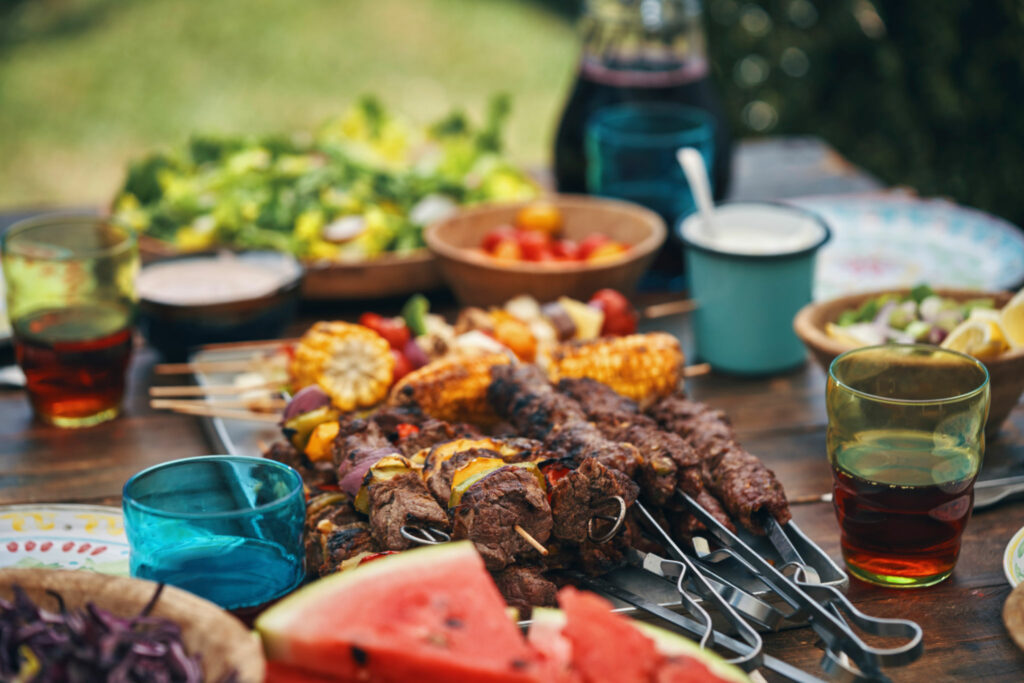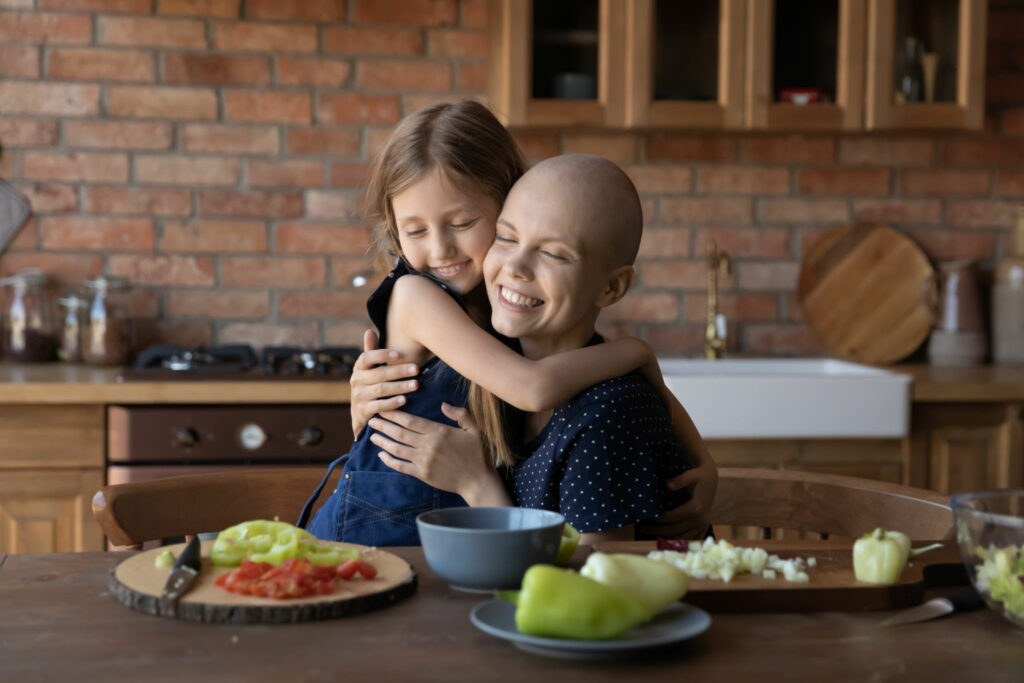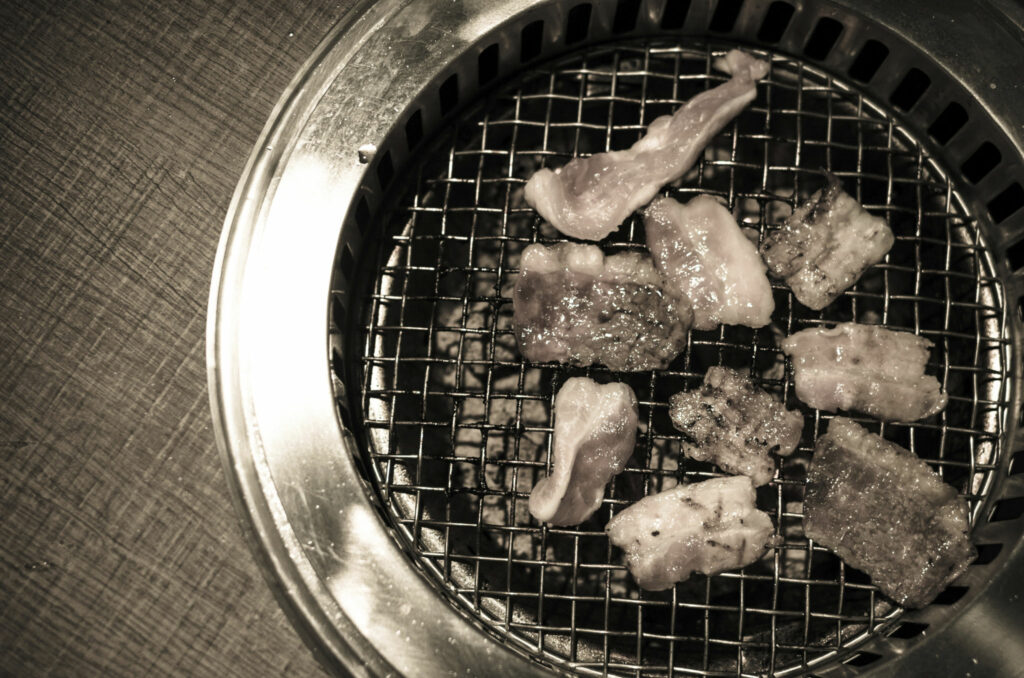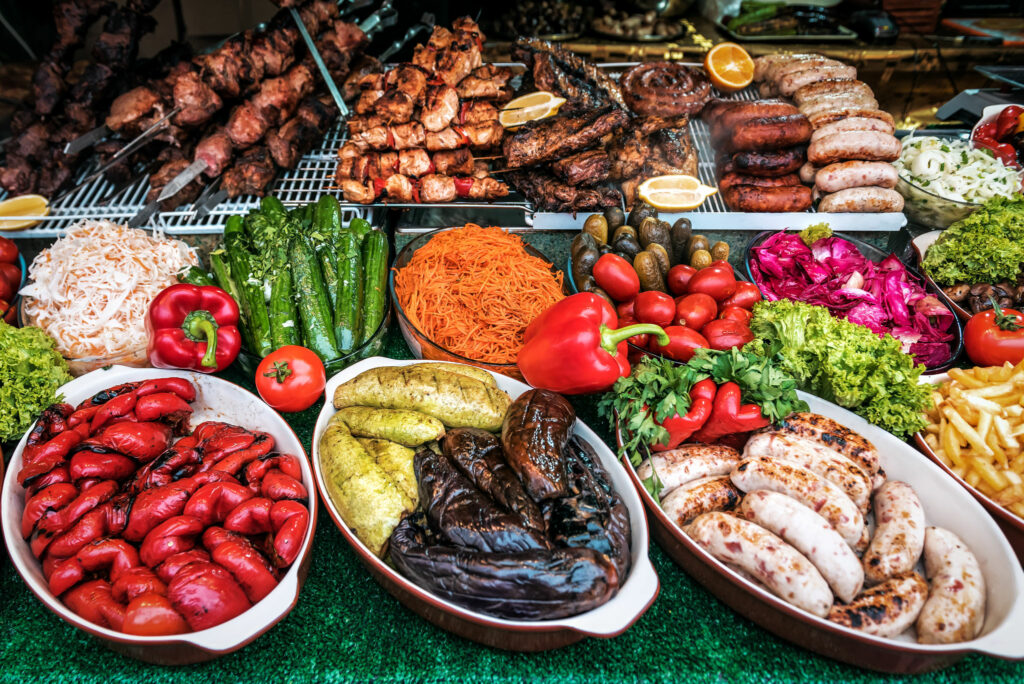Many people enjoy grilling food outdoors, but is this activity safe? Some studies have shown that grilling food can produce harmful chemicals that may increase the risk of cancer.

In this blog post, I’ll discuss the dangers of grilling food and some ways to reduce your risk. I hope you will find this information useful and informative. Thanks for reading!
The Science Of Grilling And Cancer!

When it comes to grilling, there is more to consider than just the flavor of the food. According to recent studies, the way that meat is cooked can also have an impact on cancer risk.
When meat is grilled at high temperatures, this produces compounds known as heterocyclic amines (HCAs).
These compounds have been shown to increase the risk of several types of cancer, including stomach, pancreatic, and breast cancer. In addition, grilling also produces polycyclic aromatic hydrocarbons (PAHs), which are another type of carcinogen.
PAHs are formed when overweight and juices from meat drippings come into contact with the hot coals or flames. As a result, they can end up on the surface of the grilled food.
While the exact link between PAHs and cancer risk is still being studied, it is clear that there are concerns for anyone who enjoys grilled meats.
How To Grill Your Food Without Exposing Yourself To Carcinogens!
Now that you know grilling can produce harmful chemicals, what can be done to reduce the risk? The good information is that there are several steps you can take to minimize your exposure to HCAs and PAHs.

1. Use Leaner Cuts Of Meat.
Fatty meats are more likely to drip and come into contact with the flames, producing PAHs. Using leaner cuts of meat can help to reduce this risk. In addition, trimming visible fat from meat before grilling can also help.
2. Pre-Cook Your Meat.
You can immensely reduce the amount of time meat spends on the grill by pre-cooking it in the oven or microwave. This will also help to prevent dripping and flare-ups.
When the meat is cooked through, you can then finish it off on the grill for flavor. Also, be foolproof to use a meat thermometer to ensure that the meat is cooked all the way through.
3. Avoid Charring Your Meat.
The process of charring meat can produce harmful chemicals. To avoid this, cook meat until it is browned but not blackened.
In addition, be sure to turn meat frequently to avoid charring on one side. It is also a good idea to use a lower temperature when grilling.
4. Use A Marinade.
Studies have indicated that marinating meat before grilling can help to reduce the formation of HCAs. It’s best to use a marinade that contains vinegar or lemon juice, as these have been shown to be the most effective. For added flavor, you will also add herbs and spices to the marinade.
5. Keep The Grill Clean.
Buildup of charred food on the grill can increase PAH exposure. Cleaning the grill before and after use can help to reduce this risk. Check out this post on how to clean a gas grill.
6. Use Foil.
If you’re worried about PAHs, you can cook your food on foil. This will prevent contact with the grill and any potential carcinogens. Some studies have shown that this can reduce PAH exposure by up to 95%.
7. Avoid Breathing In Smoke.
When grilling, it’s important to avoid inhaling smoke from the grill. It can be a significant source of exposure to PAHs. If possible, grill in a well-ventilated area.
In the event that smoke does get in your eyes, be sure to rinse them out with water immediately.
8. Grill Vegetables.
Grilling vegetables is an excellent way to enjoy the flavor of grilled food without exposing yourself to harmful chemicals. You will also reduce your risk by adding grilled veggies to grilled meat dishes.
9. Limit Your Intake Of Grilled Meat.
Eating large amounts of grilled meat can increase your risk of cancer. If you do choose to eat grilled meat, be sure to do so in moderation.
For added safety, you can also mix grilled meat with grilled vegetables or other grilled foods.
10. Choose An Electric Grill.
Electric grills emit lower levels of HCAs than gas or charcoal grills. If you are peeking for a safer option, choose an electric grill. With that said, it’s still important to take precautions when grilling, even with an electric grill.
What Types Of Foods Are Best Grilled?
With all of the concerns about grilling, you may be wondering what types of food are best grilled. In general, it’s best to avoid grilling fatty meats.

It’s because they are more likely to drip and come into contact with the flames, producing PAHs. Below are some specific types of food that are best grilled and do not pose a significant risk
1. Fish
Fish is a great option for the grill. It’s lean, so there’s less likelihood of dripping and flare-ups. In addition, fish is a good source of protein and omega-3 fatty acids. It’s also quick cooking, so you don’t have to worry about it drying out.
2. Shrimp
Shrimp is another great option for the grill. Like fish, it’s lean and less likely to drip or flare-up. You can also cook shrimp quickly, so there’s less risk of drying out.
3. Chicken
Chicken is a popular choice for grilling. Just be sure to clear the skin, as it can cause dripping and flare-ups. Boneless, skinless chicken breasts are the best option. On the other hand, dark meat chicken can be tougher and less suitable for grilling.
4. Turkey
Turkey is another lean meat that is great for grilling. It’s important to remove the skin, as it can cause dripping and flare-ups. Grilling turkey breast is the best option, but you can also grill dark meat turkey.
5. Vegetables
Vegetables are a great choice for grilling. You can grill just any kind of vegetable, from asparagus to zucchini. Just be sure to cut them into consistent pieces, so they cook evenly. You can also grill fruit, such as pineapple or peaches.
6. Tofu
Tofu is a great vegetarian option for the grill. It’s high in protein. For best results, be sure to press the tofu first to remove excess moisture. This will help it to brown and crispen on the grill.
7. Portobello Mushrooms
Portobello mushrooms are a great vegetarian option for grilling. Portobello mushrooms are also a useful source of protein and fiber. You do not need to press them before grilling. Just be sure to release the stem and gills.
8. Eggplant
Eggplant is an excellent vegetarian option for grilling. For maximum results, be sure to slice the eggplant into uniform pieces. You can also brush it with olive oil to help it crisp on the grill.
9. Corn
Corn is a superb choice for grilling. Many people enjoy grilled corn on the cob. You can also remove the kernels and grill them in a skewer. For added flavor, it’s a good idea to brush the corn with butter or olive oil before grilling.
10. Fruit
When you think of grilling fruit, you may think of pineapple or peaches. However, you can grill just about any type of fruit. Grilling fruit is a great mode to add sweetness to your grilled meal.
FAQs About Grilling Food & Cancer!
Q: Does Grilling Food Increase The Risk Of Cancer?
A: There is no definitive answer to this question. Some studies have shown that grilling food can increase the formation of certain chemicals that are linked to cancer. However, too many researches are needed to confirm these findings.
Q: What Are The Chemicals That Are Linked To Cancer?
A: The chemicals that are most commonly linked to cancer are polycyclic aromatic hydrocarbons (PAHs) and heterocyclic amines (HCAs).
Q: Are There Any Specific Kinds Of Food That I Should Avoid Grilling?
A: There are no specific types of food that you need to avoid grilling. However, as I mentioned before, it’s best to avoid charring or burning your food.
Q: What’s The Most Suitable Way To Clean My Grill?
A: It’s important to keep your grill clean to reduce the risk of cancer. After each use, be sure to brush the grates with a wire brush. You should also consider using a grill cleaner specifically designed for cleaning barbecue grills.
Q: Should I Use A Gas Or Charcoal Grill?
A: There is no simple answer as to whether you should use a gas or charcoal grill. Studies have shown that gas grills may release more harmful chemicals than charcoal grills. However, more research is needed to confirm these findings.
Q: What Are The Best Foods To Grill?
A: Some of the best foods to grill include lean meats, vegetables, and fruits.
Q: How Long Should I Cook My Food On The Grill?
A: You should cook your food on the grill for the amount of time necessary to achieve the desired level of doneness. Overcooking your food can increase the formation of harmful chemicals.
Q: What Temperature Should I Set My Grill To?
A: The ideal temperature for grilling food is between 225 and 300 degrees Fahrenheit.
Q: What Are Some Of The Other Risks Associated With Grilling Food?
A: In addition to the potential for increased cancer risk, grilling food can also increase your risk for other health problems. For example, grilling food can create smoke that can contain harmful chemicals. Additionally, greasy grill flare-ups can cause serious burns. So, under-cooked meat can lead to food poisoning.
Conclusion
It’s important to take these findings with a grain of salt, as the study was conducted on mice and not humans. However, until there is more research conducted on the matter, it may be wise to err on the side of caution and avoid grilling your food whenever possible.
In the meantime, GrillCharms offers many useful blogs that can help you make sure your grilled foods are cooked perfectly without any carcinogens. Visit the website today to know more about how it can help you have a safe and healthy summer barbecue season!
- The 9 Best BBQ Grills for Smoking Brisket - December 29, 2022
- 6 Mouth Watering Grilled Shrimp Recipes - September 16, 2022
- 6 Delicious Grilled Desserts - September 16, 2022
